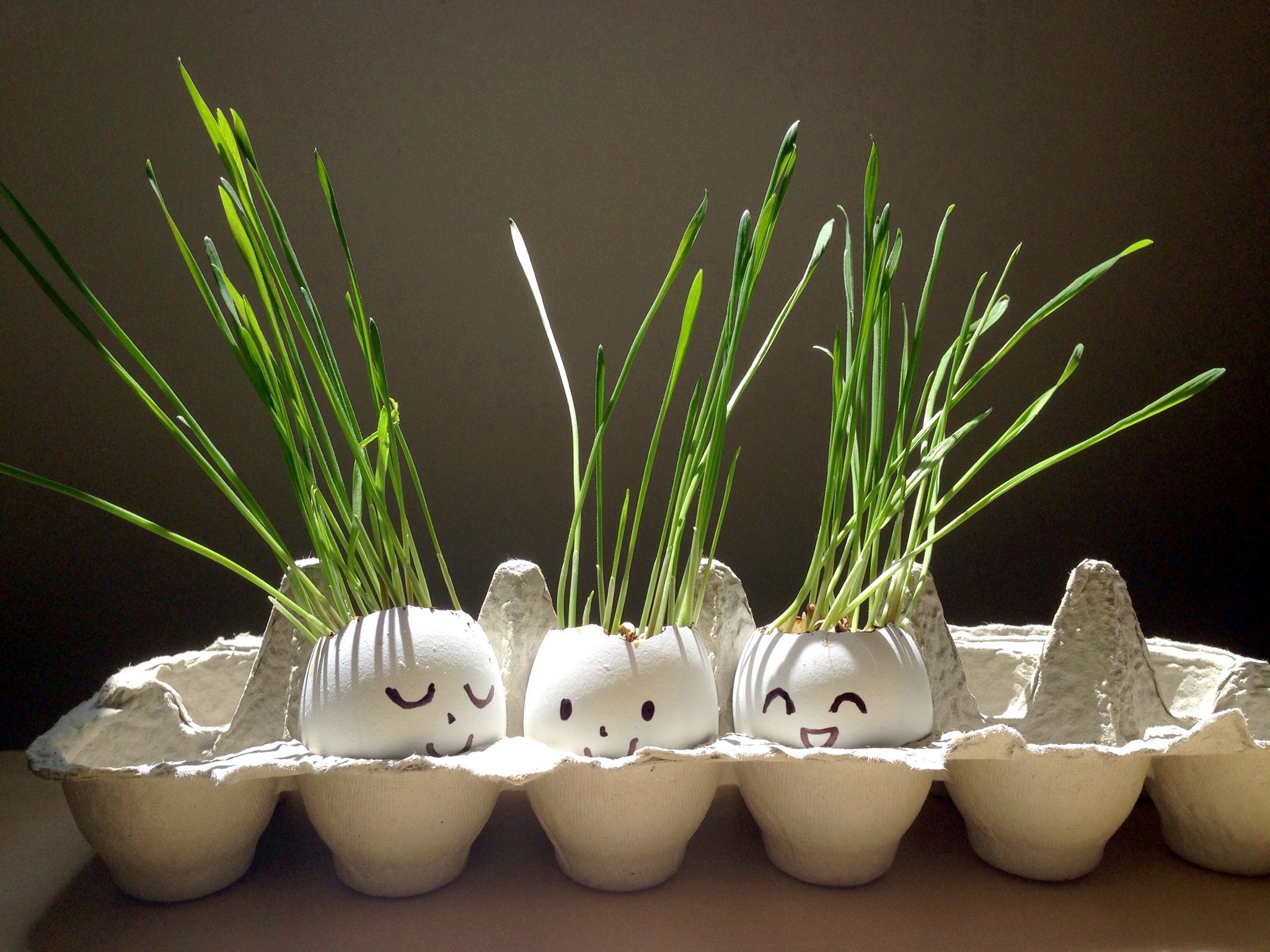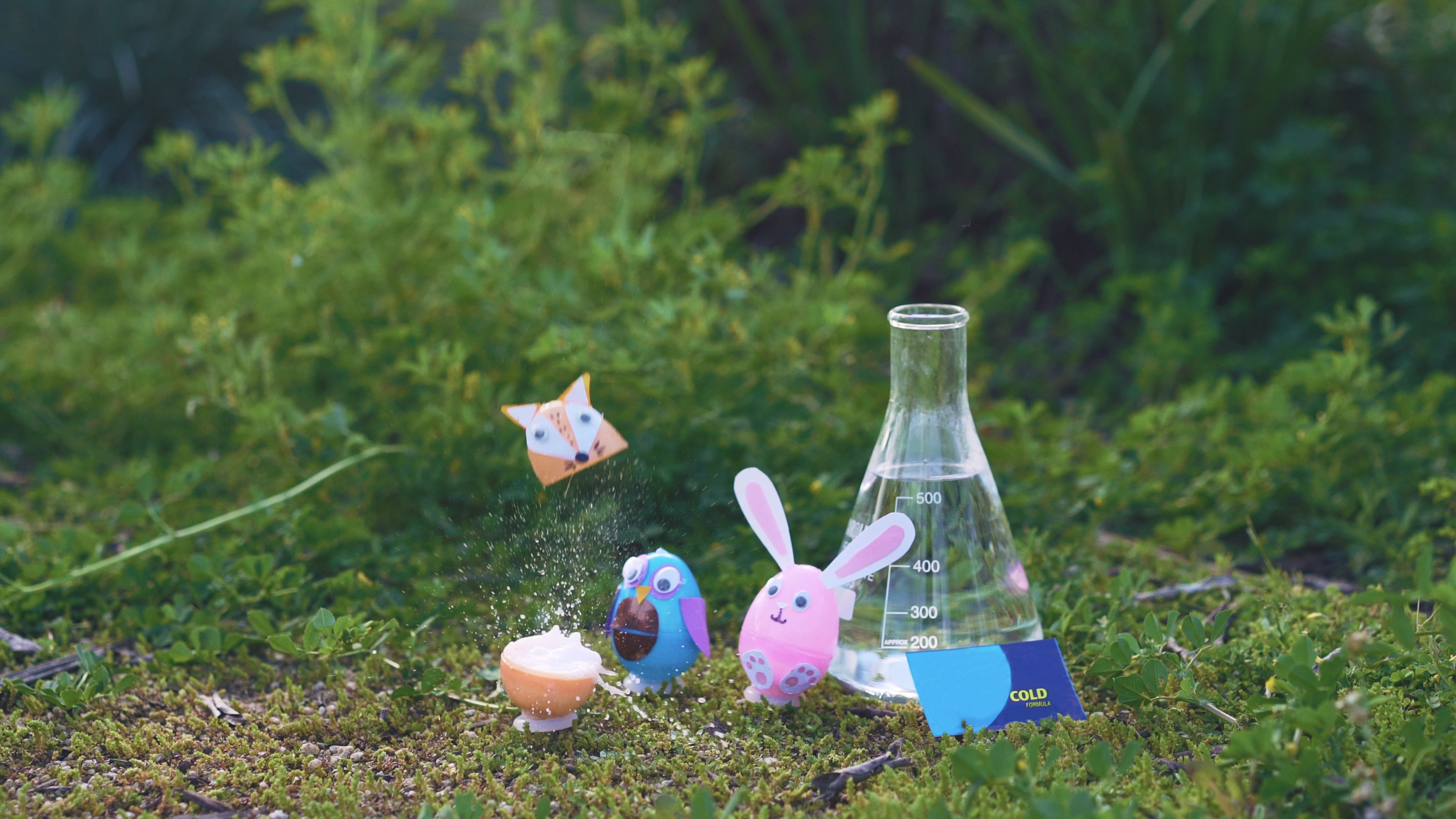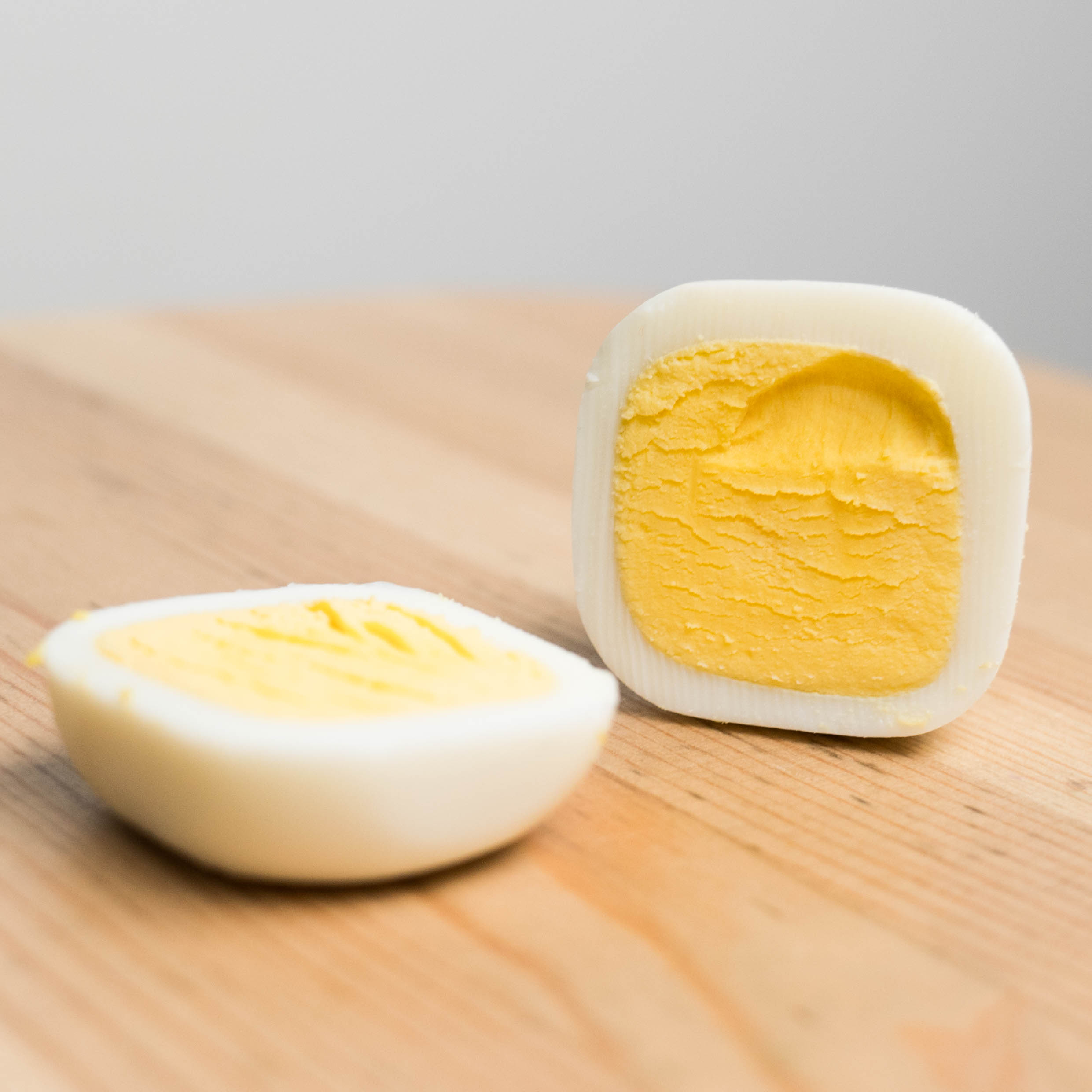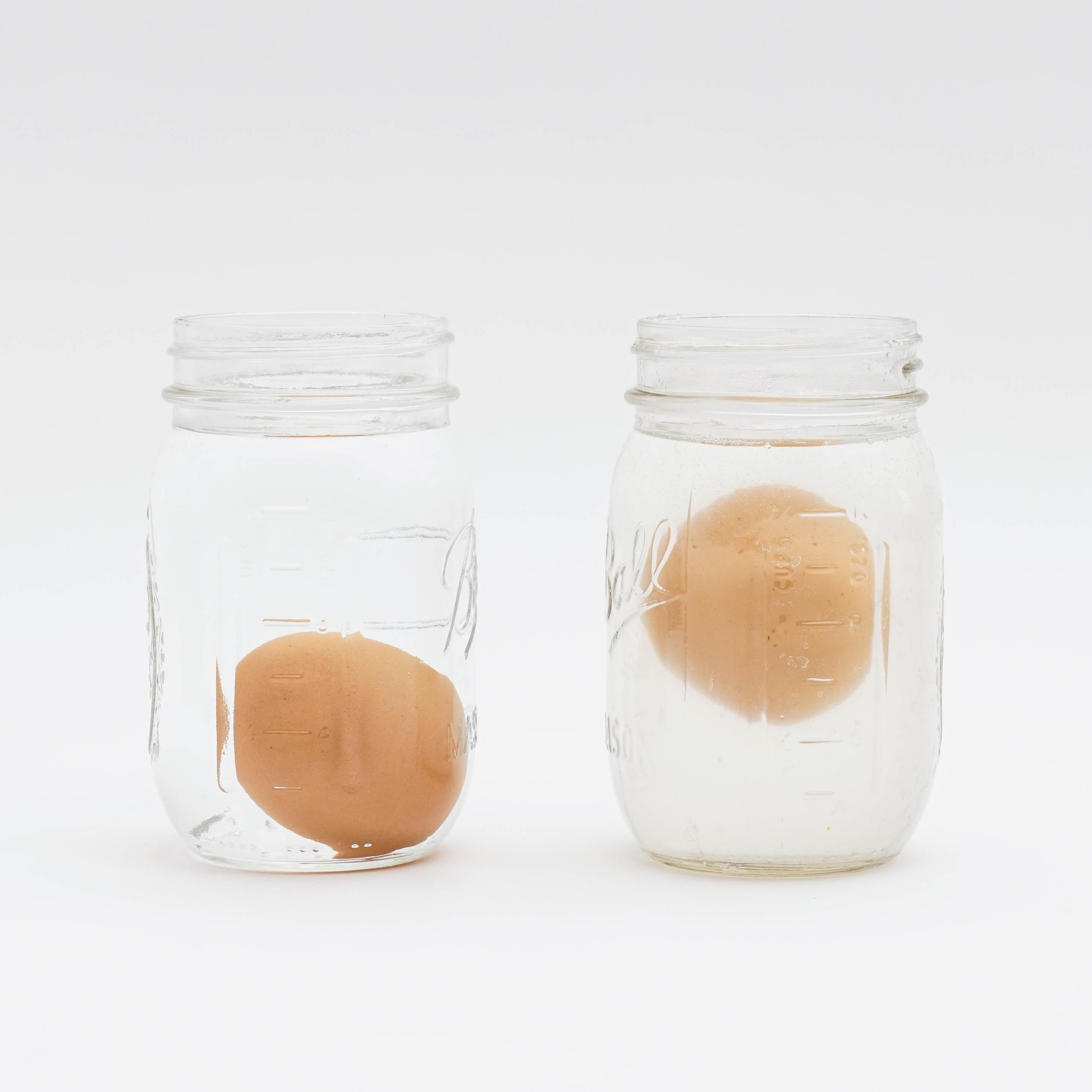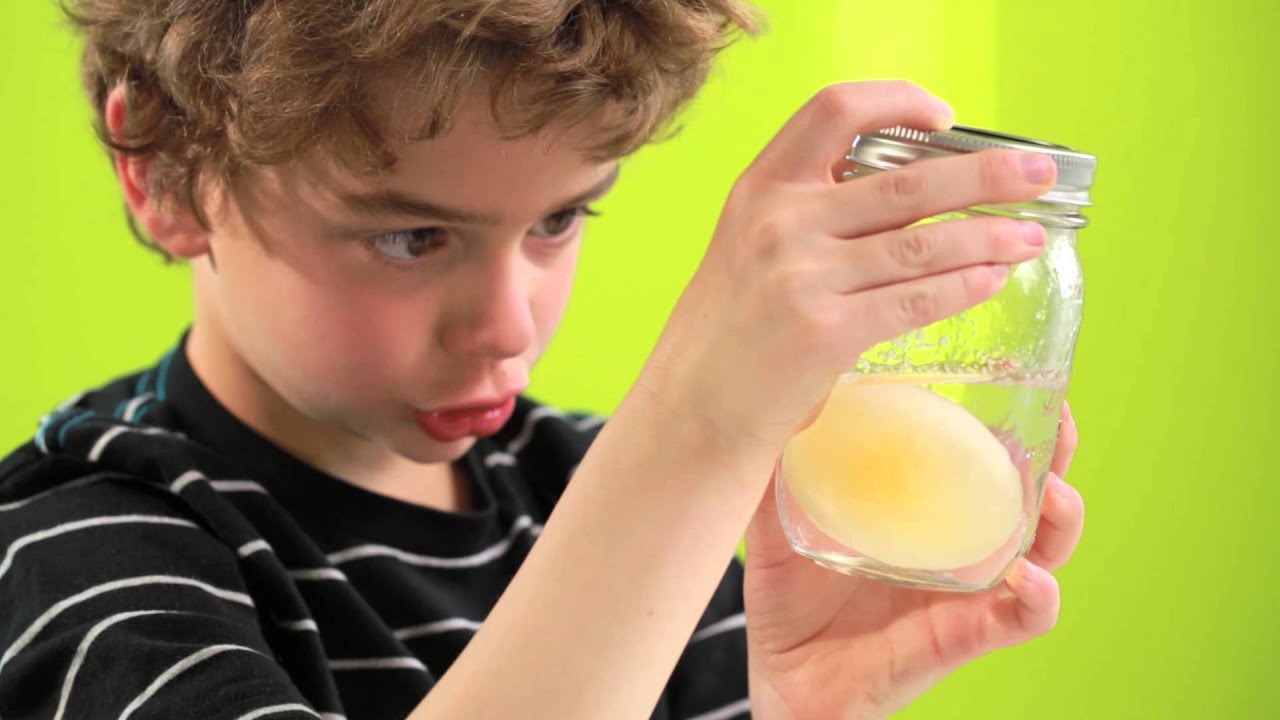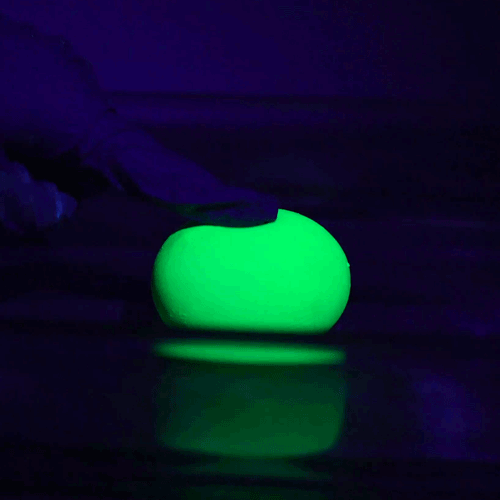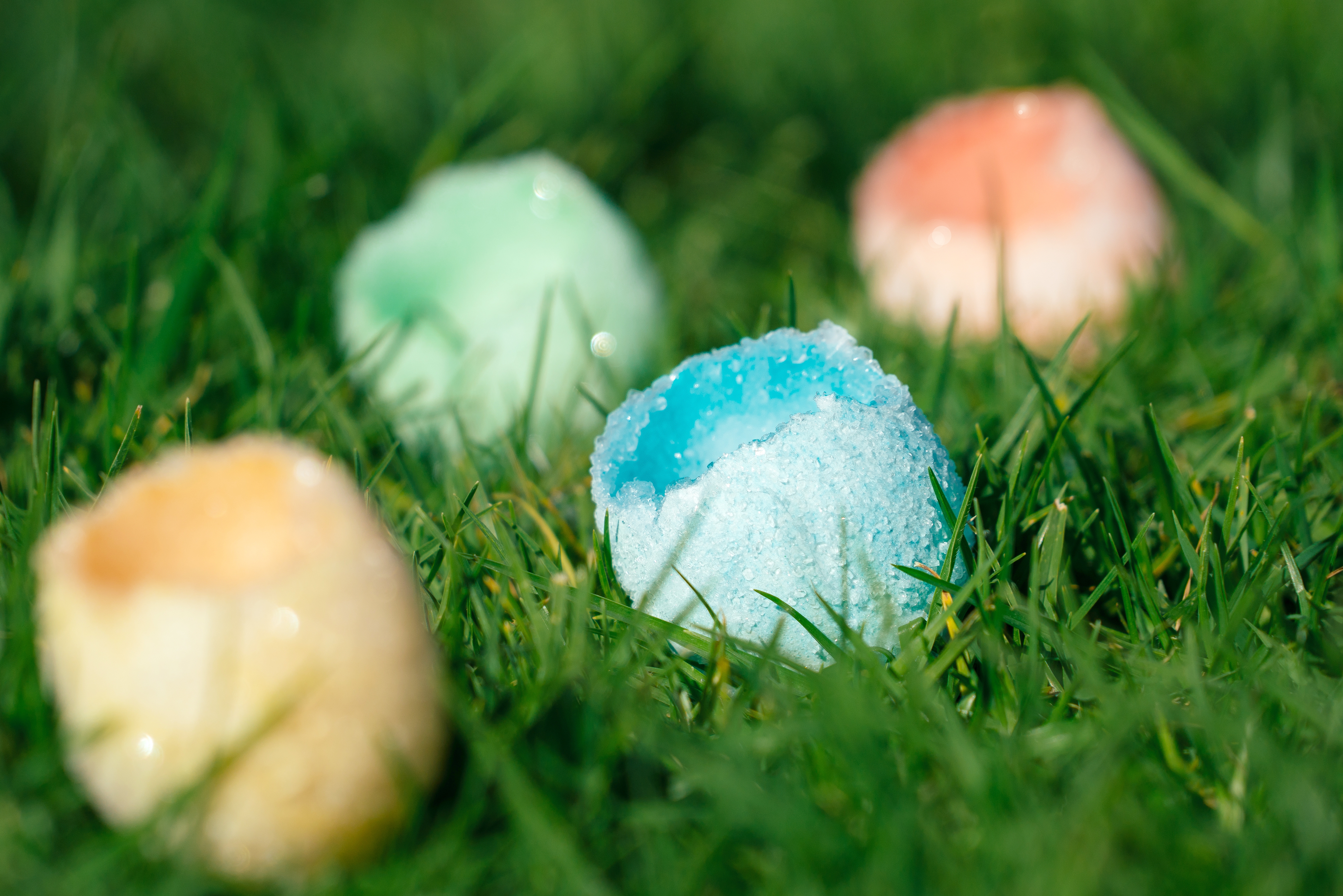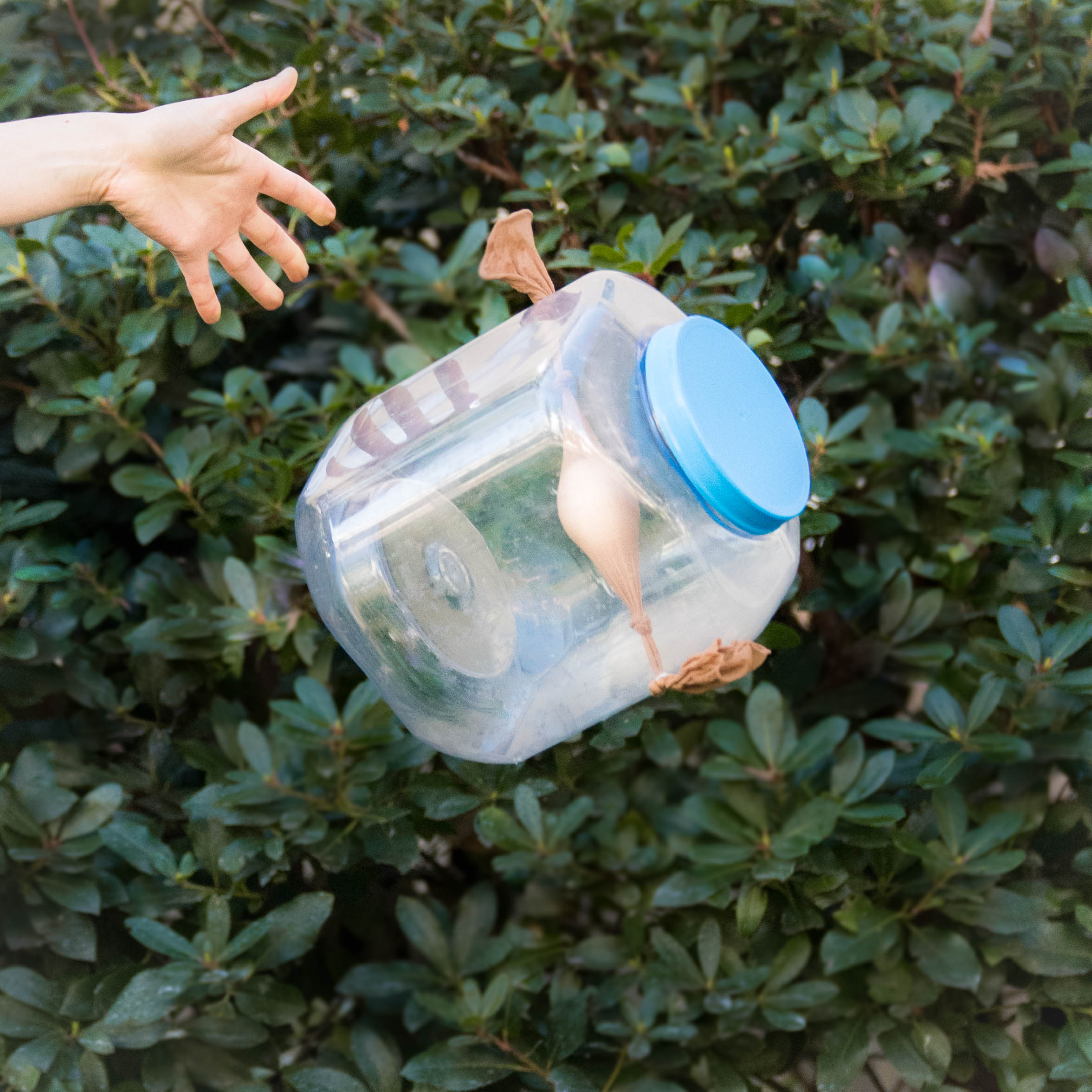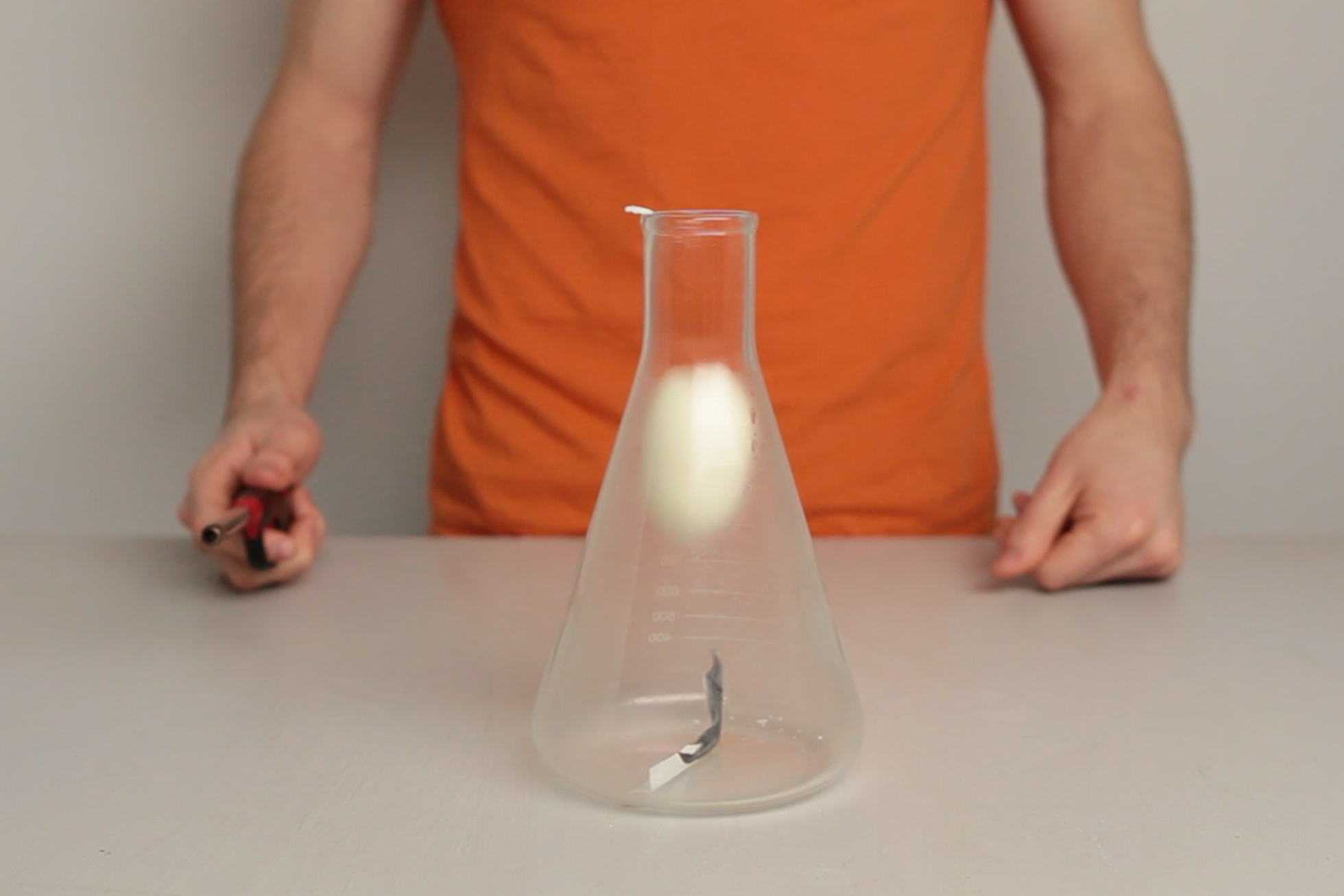- Egghead Plants
(Ages 3-11)
These little eggheads are an adorable project! Just plant the grass seeds and watch the hair grow. You can even use these eggheads as seed-starter pots because they are biodegradable and full of calcium for your plants!
- Easter Egg Rocket
(Ages 5-16)
Where do fizzy tablets get their fizz? After all, when they're in the package, they don't do anything at all. But drop them into a glass of water, and fizzy tablets (like Alka-Seltzer) immediately start fizzing, filling the glass with bubbles.
The bubbles are full of carbon dioxide, just like in a glass of soda or fizzy water. You're seeing a chemical reaction in the glass, where compounds in the fizzy table react to make something new — in this case, carbon dioxide (and some other things). You can see this happen in a plain old glass of water, but these jumping Easter eggs are a festive way to have fun with fizzy tablets! in this case, carbon dioxide (and some other things). You can see this happen in a plain old glass of water, but these jumping Easter eggs are a festive way to have fun with fizzy tablets!
- Square Egg
(Ages 5-16)
Is a square egg possible? Not in nature - but you can re-shape a hard-boiled egg in just a few easy steps!
Discover everything that eggs have to offer with Eggsperiments from the KiwiCo Store! Use the scientific method with a series of egg-based experiments that explore chemistry, physics, and biology.
- Floating Egg
(Ages 5-8)
Does an egg sink or float in water? What if it does both? In this experiment, make an egg sink and float at the same time!
- Egg in Vinegar Experiment
(Ages 5-11)
Want to see a chemical reaction in action? With this egg in vinegar experiment, we observed and followed a regular egg through a transformation to become a bouncy egg. You can too with just a few repurposed ingredients you may have around the house for Easter!
This experiment allows you to see how two common household materials react — eggshell and vinegar. When these materials come in contact, a (safe) chemical reaction takes place and creates new compounds. This easy experiment is great for children to do on their own, and fun to observe how the egg changes over time.
Want to explore more kitchen science experiments? Explore the tastier side of learning with Science of Cooking: Ice Cream from the KiwiCo Store!
- Glowing Bouncy Egg
(Ages 5-16)
Can you bounce an egg without breaking its shell? Try this simple chemistry experiment and make a large, luminescent rubbery egg.
- Egg Geodes
(Ages 9-16)
Have you ever grown your own crystal geodes? Try this egg experiment and grow your very own borax crystals in a shell! Experiment with different borax concentrations and see how big your egg geodes can grow.
Discover everything that eggs have to offer with Eggsperiments from the KiwiCo Store! Use the scientific method with a series of egg-based experiments that explore chemistry, physics, and biology.
- Egg Drop Project
(Ages 9-16)
How can you get an egg to drop without breaking it? Change the way it drops with this awesome egg drop experiment!
An egg drop experiment is the perfect way to tap into your creativity and solve problems through a cool (and messy) project! Think outside the box and engineer awesome solutions to keep your egg safe and sound. If your egg doesn't crack, then your design is a success!
Discover everything that eggs have to offer with Eggsperiments from the KiwiCo Store! Use the scientific method with a series of egg-based experiments that explore chemistry, physics, and biology.
- Egg in a Bottle
(Ages 9-16)
Impress your friends and family with this simple, quick, and super-cool 'egg in a bottle' science trick! You'll learn how to harness the power of expanding and contracting gasses to suck an egg into a bottle in which it would never normally fit.
Discover everything that eggs have to offer with Eggsperiments from the KiwiCo Store! Use the scientific method with a series of egg-based experiments that explore chemistry, physics, and biology.
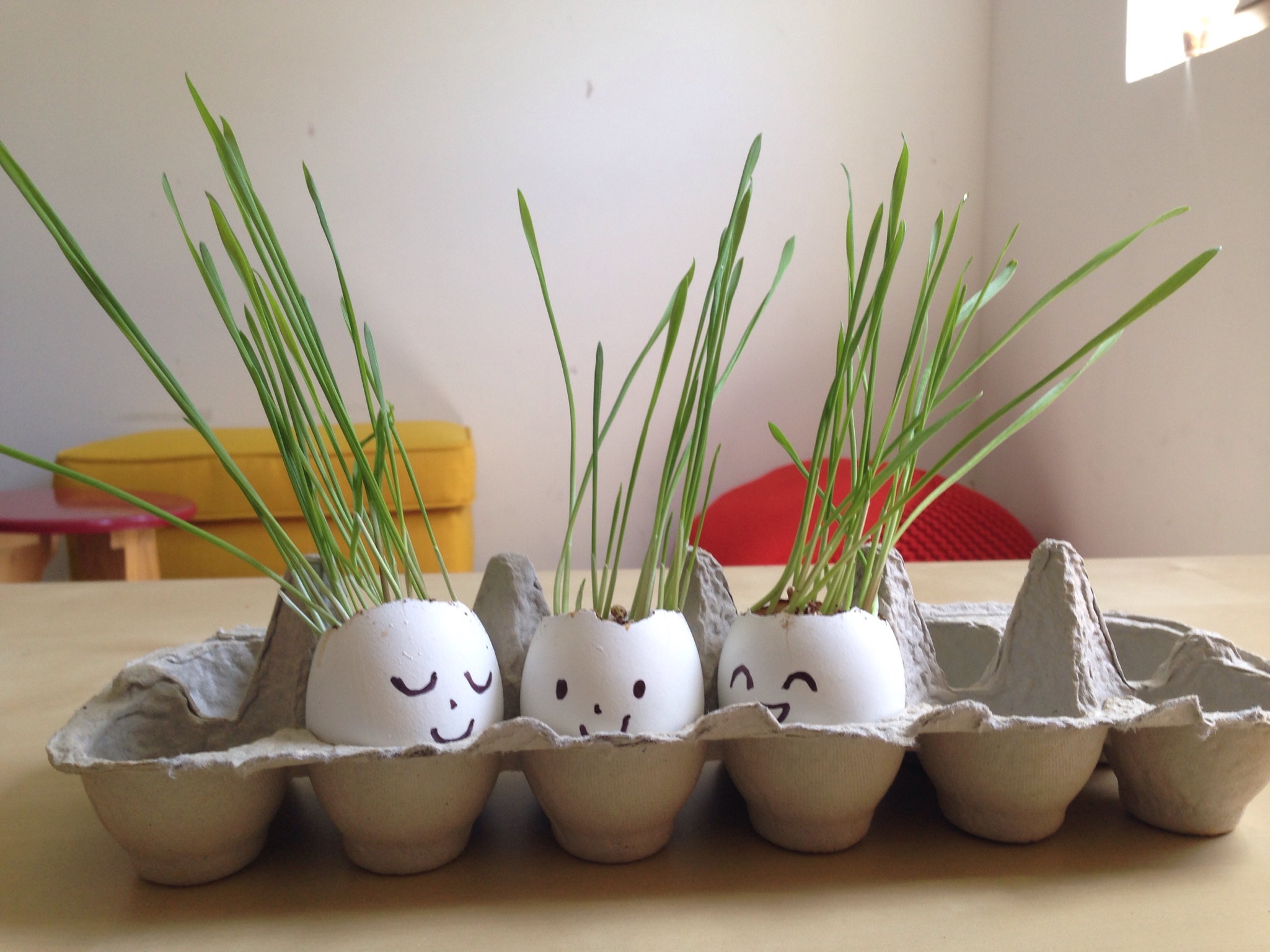
Egg Experiments to Try at Home
Spring is the season of eggs – whether chocolate, painted or plastic! Eggs are an eggcellent way to eggsplore science (and puns), so we collected our favorite eggsperiments for you to try at home. Since eggs are in short supply in some places, most of these projects are edible or use shells (real and plastic). But if you are stocked up on eggs, save a few for these science eggsperiments!
